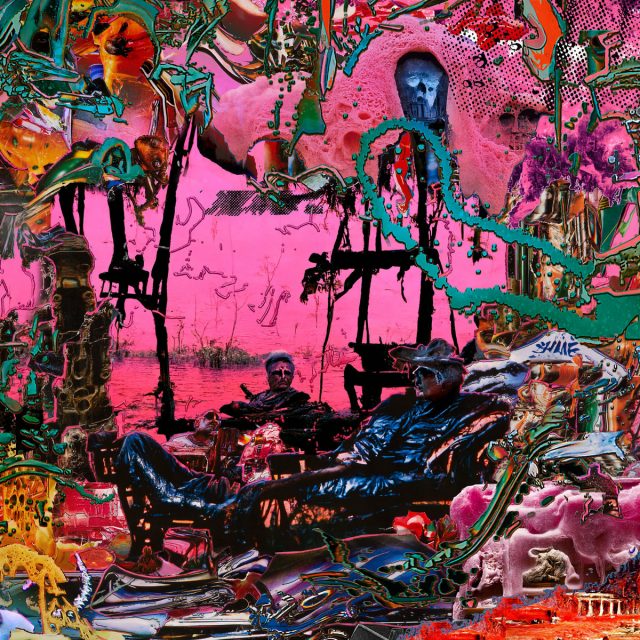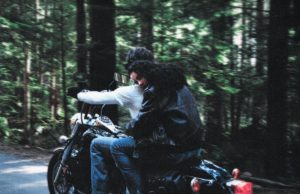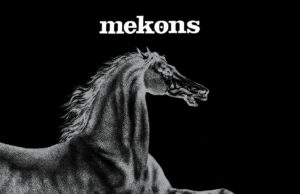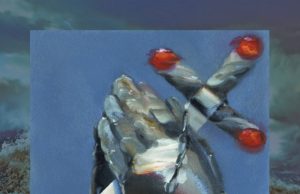THE EDITED PRESS RELEASE: “Hellfire is the third studio album from Black Midi, the U.K. trio of Geordie Greep (guitar, vocals), Cameron Picton (bass, vocals) and Morgan Simpson (drums). Written in isolation in London after the release of last yearʼs Cavalcade, Hellfire builds on the melodic and harmonic elements of its predecessor, while expanding the brutality and intensity of their debut Schlagenheim. As Greep describes it: “If Cavalcade was a drama, Hellfire is like an epic action film” that delves into overlapping themes of pain, loss and anguish. It is their most thematically cohesive and intentional album yet.
Whereas the stories of Cavalcade were told in third person, Hellfire is presented in first-person and tells the tales of morally suspect characters. There are direct dramatic monologues, flamboyantly appealing to our degraded sense of right and wrong. Youʼre never quite sure whether to laugh at or be horrified.
The single Welcome To Hell, for instance, tells the story of a shell-shocked soldierʼs excess and military discharge. The setting is a far-off military campaign — an exotic coastal town commandeered by the invading army and swarming with soldiers. It is night; erratic men rush up and down the strip in various stages of inebriation, neon signs light up the bars, and out of their open doors waft wisps of indeterminate smoke. Deafening howls of motorcycle engines linger all around, accompanied by a medley of languages — all slurred, coarse, hoarse and evasive of any true emotion, leaving the soldier unable to handle the world in which he finds himself. The track is soundtracked by funky guitar sections, driving horns and a progressively snarling vocal.

“Almost everyone depicted is a kind of scumbag,” says Greep. “Almost everything I write is from a true thing, something I experienced and exaggerated and wrote down. I donʼt believe in Hell, but all that old world folly is great for songs, Iʼve always loved movies and anything else with a depiction of Hell. Danteʼs Inferno. When Homer goes to Hell in The Simpsons. Thereʼs a robot Hell in Futurama. Isaac Bashevis Singer, a Jewish writer who portrays a Satan interfering in peopleʼs lives. Thereʼs loads!”
Elsewhere, the mysterious military mining corporation behind Cavalcade’s Diamond Stuff reappears in Pictonʼs new song Eat Men Eat, and some of his best lyrics appear on the forcefully sweet Still, Hellfireʼs least abstract, most lyrically personal song. “Thereʼs a lot of love and things like that on Hellfire,” says Picton. ”Thereʼs a tender flipside to every song. The dark comes out strongly, thereʼs Hell and Satan and murder and unsavoury things, but every song has both light and dark.”
Creating Hellfire took six months, sprouting from a riff on one of the groupʼs oldest jams, which bloomed into the futuristic boxing drama Sugar/Tzu. The range, power and potent production of Black Midiʼs music has never been greater than on Hellfire, partly thanks to producer Marta Salogni, who also worked with the band on Cavalcade opener John L. But, as always, the type of music Black Midi play isnʼt as important as its quality. And whatever you think about Black Midiʼs music isnʼt as important as how you feel about it.”









































